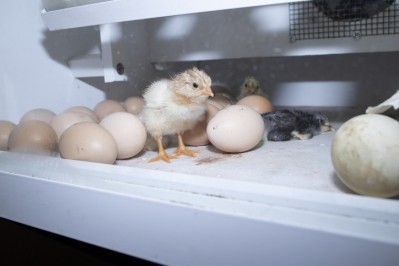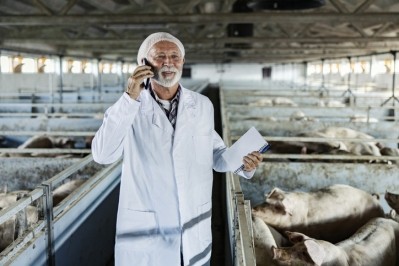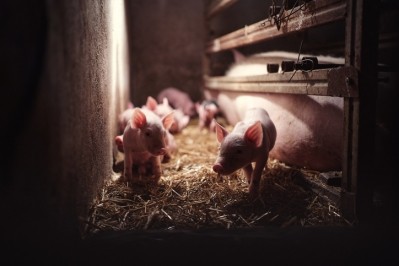Maternal nutrition may boost bone strength in poultry progeny

The Saskatchewan-based company started a series of research projects exploring the use of flaxseed-generated omega-3 feed additives, LinPro, with poultry in 2017. The company released initial details from one of the studies last Monday [June 17].
Data and results from several related projects are set to be released in the near future, said Janna Moats, technical services manager, with O&T Farms Ltd. “[This] is just the beginning of the preliminary information that is currently being put out,” she added.
“The other aspects that will be coming out will be overall progeny production performance both on layers and … on broilers,” she told FeedNavigator.
The researchers running the trials will “analyze data on the breeder bird performance, hatchery performance as well as progeny health and production.”
The company worked with researchers at the University of Guelph for the feeding trials, she said. “Right now, Dr Kiarie and his team are in the process of organizing all the data that they’ve collected for the past few years and running analyses and drawing some conclusions from it,” she added.
There has been increasing interest in the nutrition used for breeding poultry and the implications of breeder diets on the progeny, she said.
“What we’re hoping is that this information will be a nice tool for the breeder industry to be able to draw from – hopefully, it will show that the application of developmental programming feeding systems can really help them in providing more robust chicks,” Moats said. “Overall, we’re hoping to help add value to their chicks, support improved efficiencies throughout the entire production chain and hopefully minimize the need for treatment intervention.”
Company background, research interests
O&T Farms has been focused on work with feed additives for niche market production, said Moats. Adding, “For several years we serviced the value-added food production line of the poultry industry.”
In addition to developing feed additives to provide omega-3 levels to eggs and poultry, the company has worked with products for dairy and beef production, swine, piglets and horses, according to company information.
“The LinPRO product has been successful in supporting the omega-3 egg market for quite a while, but we never lose sight of where the industry is going, what challenges are being seen,” Moats said. “With growing restrictions on antibiotic usage and the need for improved efficiency and sustainability, we started to look into how our products might help.”
“We know that the benefits of omega-3s in developmental programming have been shown in humans and other species, so we thought it had the potential to benefit poultry as well,” she added.
The interest in industry challenges and use of nutritional programming helped develop the research project, she said. Adding, “The idea being if we can set the birds up for success in the egg maybe we could help minimize the need for treatment interventions, improve efficiencies and help the industry that way.”
The company had an understanding that there could be health benefits related to the use of omega-3 fatty acids, she said. But it was unclear what that use might mean for poultry production coupled with the changes in regulation and interest in curbing antibiotic use.
“In the broiler industry, the time from hatch to market is short and leaves little opportunity for effective treatment intervention if needed,” Moats said. “If we can set them up for success earlier through maternal feeding, getting the nutrients into the egg and making hatching robust chicks – we can improve supply chain efficiencies and overall economic returns thereby supporting the sustainability of the industry.”
Maternal diet research
The recently published preliminary data looked at the use of an omega-3 flaxseed-based feed additive in the diet of breeding hens producing pullets or birds that will grow to become laying hens, Moats said. The focus was on the interaction between use of the additive and the development of bone density.
Bone health is a focus in egg-laying birds because they have an increased demand for calcium when they lay eggs, she added.
Breeding hens in the trial were given one of two diets – a control, or a diet supplemented with the omega-3 feed additive, she said. The form of omega-3 used provides levels of ALA or alpha-linolenic acid to the diet.
“What they found was the pullets that came from breeder stock that were fed an omega-3 supplement they actually had stronger bones than the control,” she said. “The mechanism behind that is still to be described, but it is an interesting finding and it definitely has practical applications for the egg industry.”
Birds raised from hens receiving the supplement had increased tibia ash weight – 1.41g compared 1.26g – and stronger bones than those in the control group, according to study results. Tibia strength was reportedly 22% higher at 12 weeks compared to control group birds.
As more information is analyzed from the related nutritional studies, the hope is that some of the results seen become clearer, Moats said.















